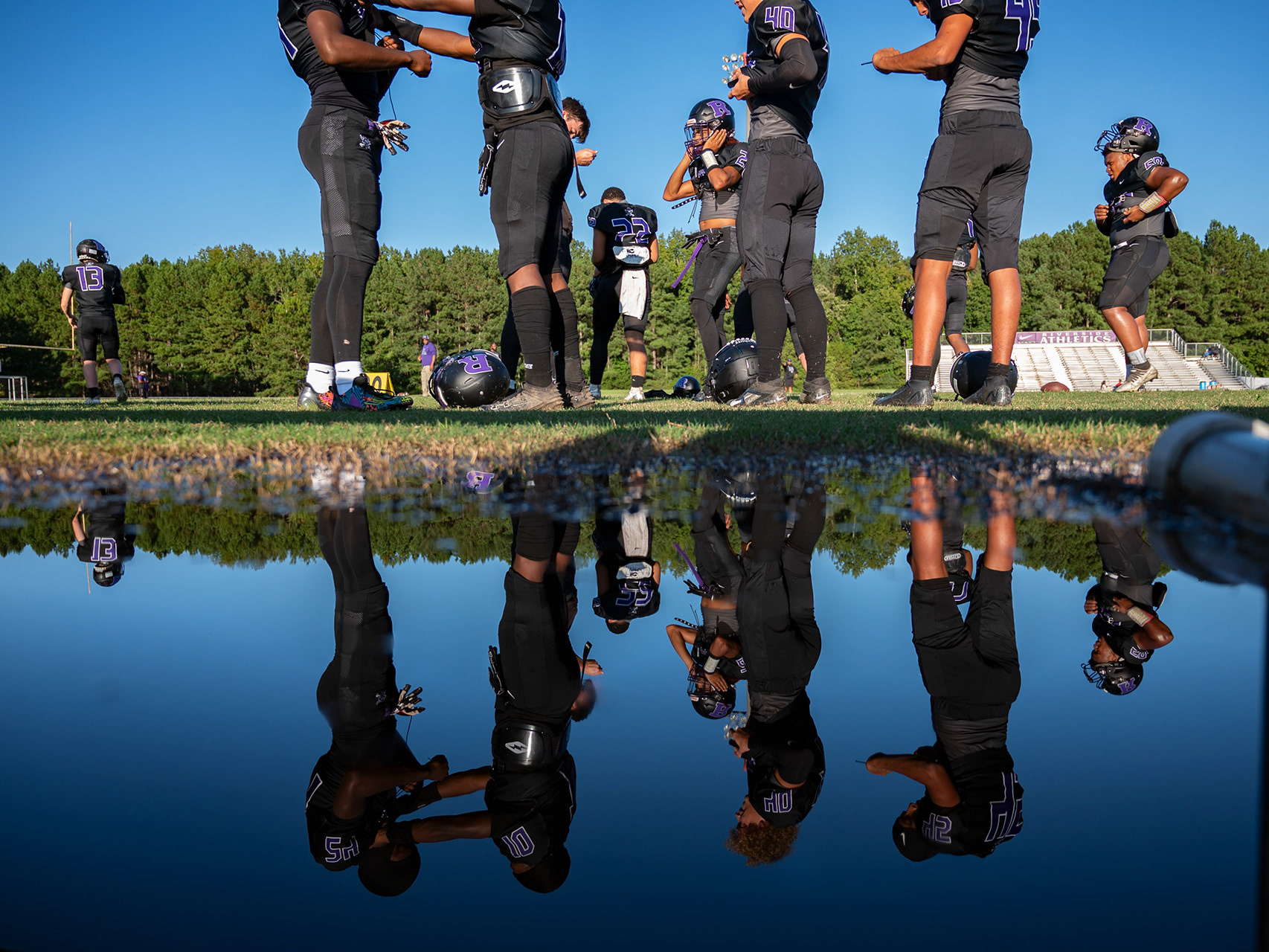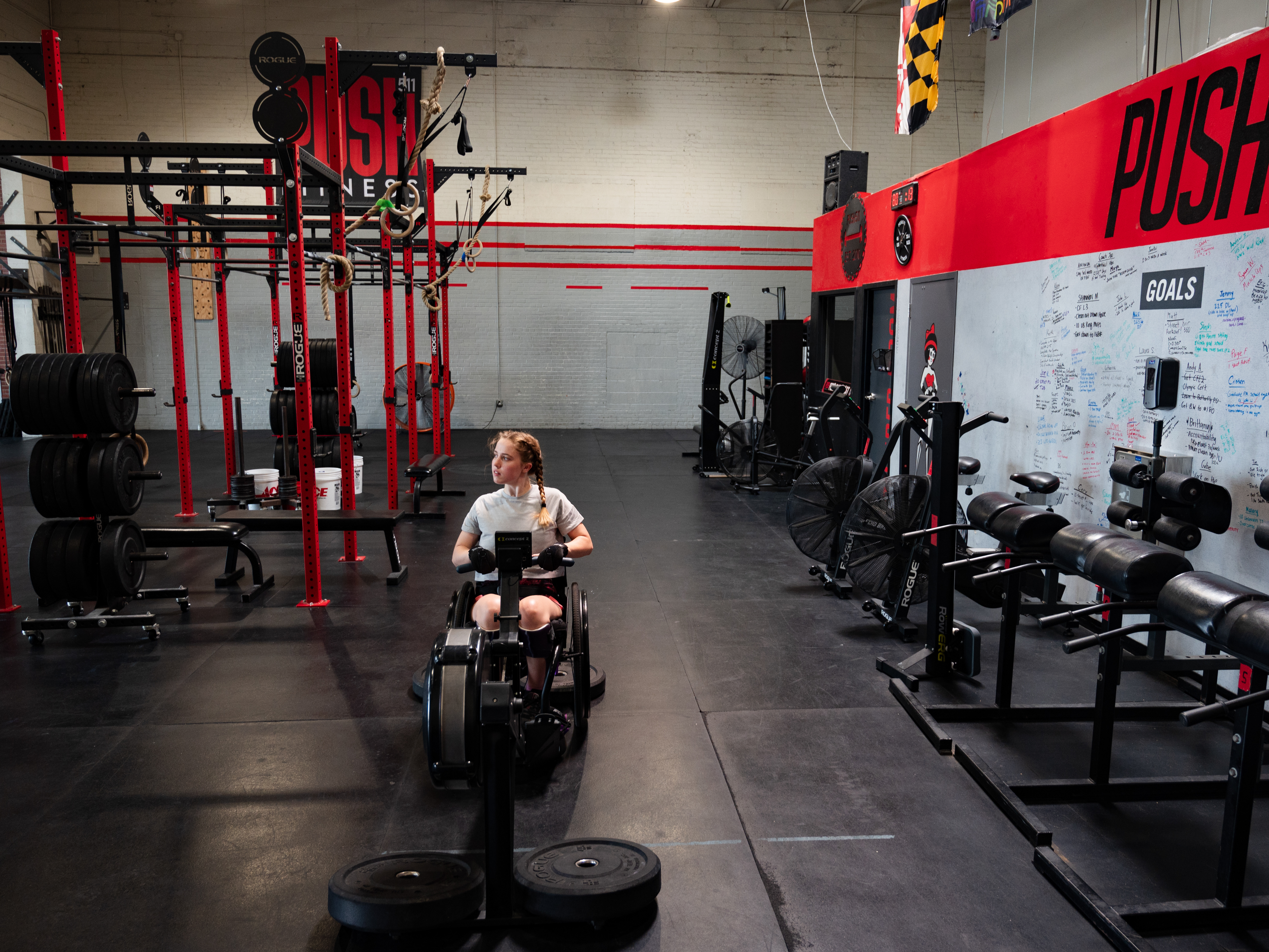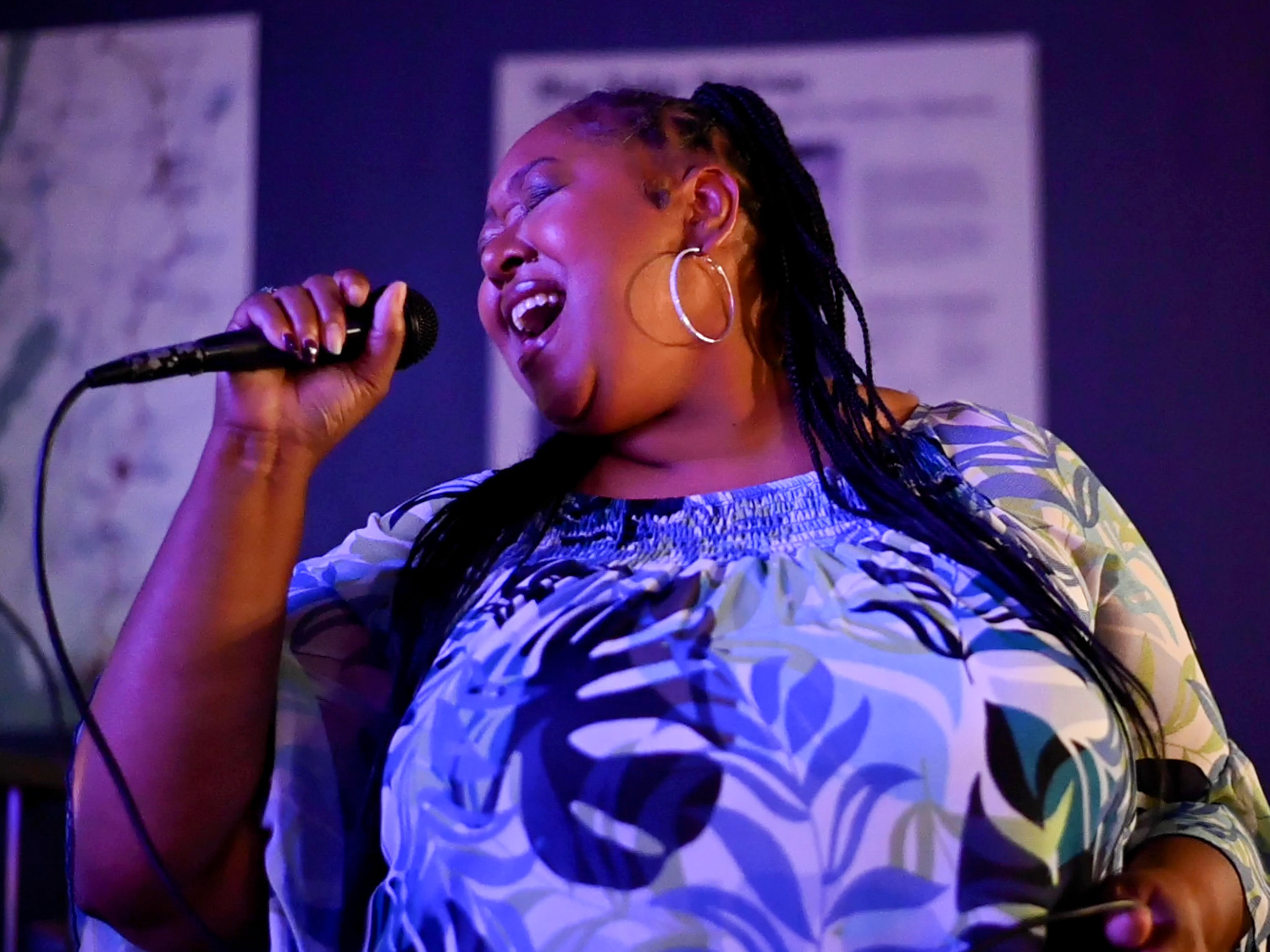Housing serves as a form of healthcare by mitigating dangerous health conditions that arise from a lack of shelter. Natural disasters and the opioid crisis fuel the struggles of people experiencing homelessness in Puerto Rico. Carla Correa Cepeda has dedicated her life to providing healthcare to people experiencing homelessness for the past seven years.
Cepeda rubs her neck after a long week of work. The emotional toll of finding solutions for a population that faces countless barriers caused by societal stigmas weighs heavily on Cepeda. “The responsibility of creating a plan throughout Puerto Rico to serve the homeless is a huge responsibility,” she said.
Cepeda and her co-worker Gerardo Medina walk through the streets of Ponce, Puerto Rico where the damage from frequent earthquakes is evident in the broken and abandoned structures. Cepeda’s current project focuses on reducing the vulnerability of the unhoused population caused by natural disasters and health issues stemming from lacking shelter.
At the homeless shelter in Ponce, Cepeda presents her current project, Whole Community Resilience Plan (WCRP). Afterward, she seeks feedback from individuals in the community so she can better serve them. “It’s important for me to do my best to bring other opportunities to them.”
Medina and Cepeda sit in the plaza in Ponce to eat lunch and write notes about what was accomplished at their morning event. Sleeping in the city plaza has been criminalized, “I think this is the biggest challenge we have in Ponce,” says Cepeda, “What I can do is care and not see them as one dimensional.”
Medina and Cepeda pack up the car to leave Ponce. Cepeda encouraged Medina to join the Coalicion de Coaliciones team knowing their partnership could be a powerful tool to the community. Medina has personally battled addiction and is confident he can use his life experiences to help those actively struggling.
On her balcony, Cepeda attends an online class for her PhD in Social Policy at the University of Puerto Rico. She hopes to expand her tools to serve communities by furthering her education.
“Not many people are doing (this work) with that commitment and sensitivity that is needed,” she said.
Cepeda and her partner, Luis Román, watch the Puerto Rico baseball game on his phone while walking around San Juan on a Saturday. Also working to combat addiction, Román understands the emotional toll it takes on her mental health. Together, they are able to create a safe space to process those emotions.
Cepeda and her daughter Andrea Correa wait for Román as he consoles a former patient that he randomly bumped into. Their years spent doing this work has had a large impact, therefore it is not uncommon for Cepeda or Román to encounter people they have helped throughout Puerto Rico.
Cepeda facetimes her mother, Raquel Román to share the special moment of Correa picking out a dress for her senior prom. Correa attends boarding school during the week, which makes the time they spend together on the weekend especially important.
Cepeda leaves her home at 6AM to begin the two hour drive to her office in Ponce as the sun rises. In addition to the psychological challenge of her work, driving 4 hours roundtrip physically exhausts her. The value of working directly in the community outweighs the burdens the travel places on her.
Cepeda interviews Julio Benítez at the homeless shelter in Ponce to receive feedback on his housing experiences during natural disasters and Covid-19.
“I think it’s important we can develop a space where people can talk about what they need,” said Cepeda.
Cepeda sits on the floor at the clinic in Ponce and eats lunch. She takes opportunities where she can find them throughout the day to center herself. These moments of reflection give her time to be intentional about both her work and her mental well-being.
Cepeda embraces her co-worker, Brenda Pérez. After struggling with her mental health at her previous job, Cepeda finds empowerment through the support and joy of her co-workers. This helps her continue working while also caring for herself.
“I love what I am doing right now,” Cepeda confidently exclaimed.
read more at Isla De Fuerza: https://isladefuerza.unc.edu/road-to-recovery/








